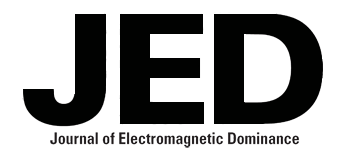By Ken Miller
In the latest episode of our podcast, I had the pleasure of hosting Madison Arcangeli, Founder and President of Forza DC, and Katy Nazaretova, Forza DC’s Director of National Security and Technology Policy. As experts deeply embedded in the workings of Capitol Hill, they provided invaluable insights into the current state of the congressional budget process, particularly the National Defense Authorization Act (NDAA).
Setting the Scene: The State of the Budget Process
As of June 25, the NDAA has already passed the House floor. Madison highlighted that while the House has made significant progress, the Senate is expected to move on the NDAA in July. This timeline sets a tight schedule with Speaker Johnson aiming to complete all bills before the August recess.
Katy elaborated on the intricate process behind the NDAA, noting that it typically begins in January with members of Congress submitting their priorities. These are then compiled into the Chairman’s Mark, leading up to the full committee markup in May. This year, a streamlined approach was adopted, bypassing the usually procedural subcommittee markups.
“The NDAA process remains largely bipartisan, showcasing a collaborative effort to address defense needs.”
Bipartisanship and Passage
Despite the often contentious nature of congressional proceedings, Madison and Katy pointed out that the NDAA process remains largely bipartisan. The recent passage of the NDAA off the House floor, although largely along party lines, showcased a collaborative effort to address defense needs.
Katy provided a behind-the-scenes look at the markup process, describing it as a marathon session often stretching into the early morning hours. This year, however, the markup concluded relatively early, reflecting a focused and defense-centric debate.
Leadership Changes and Their Impact
A significant development this year was the change in leadership at the subcommittee level, particularly the appointment of Congressman Don Bacon as the chairman of the subcommittee overseeing Cyber, Innovation, and Information. This change is seen as a positive move for the Electromagnetic Spectrum Operations (EMSO) community, given Bacon’s deep understanding and advocacy for electromagnetic warfare (EW).
Katy, drawing on her experience with the EW working group, emphasized the importance of having leaders who are well-versed in EW issues. She noted that this leadership change is likely to push forward critical initiatives in the EMSO domain.
Quality of Life and Personnel Issues
A major focus of this year’s NDAA is on personnel and quality of life issues for service members. Both Madison and Katy underscored the importance of this shift, highlighting the work of the Quality of Life Panel led by Congressmen Bacon and Houlahan. This panel’s efforts aim to address longstanding issues such as housing conditions and pay increases, reflecting a broader commitment to supporting service members.
“The emphasis on training in emerging technologies like artificial intelligence is crucial for preparing the next generation of warfighters.”
Training and Emerging Technologies
Another key area of focus is training, particularly in emerging technologies like artificial intelligence. Katy discussed the provisions aimed at enhancing digital literacy and technical skills within the military. This emphasis on training is seen as crucial for preparing the next generation of warfighters for the challenges posed by modern warfare.
Looking Ahead: The Senate’s Role and Election Dynamics
As the NDAA moves to the Senate, Madison and Katy cautioned that the process might face delays due to broader political dynamics. With a significant number of senators up for reelection, the legislative calendar is likely to be shaped by electoral considerations. They anticipate a continuing trend of utilizing continuing resolutions (CRs) to keep the government funded, a practice that has become the norm over the past few decades.
Conclusion: A Complex but Critical Process
The discussion with Madison Arcangeli and Katy Nazaretova provided a comprehensive overview of the current state of the defense budget process. Their insights underscore the complexity of navigating the legislative maze but also highlight the critical importance of this process in ensuring the country’s defense readiness. As the NDAA progresses, their expertise will continue to shed light on the intricacies of Capitol Hill’s workings, offering valuable perspectives for our listeners.
Want more? Start listening to the full episode now.






